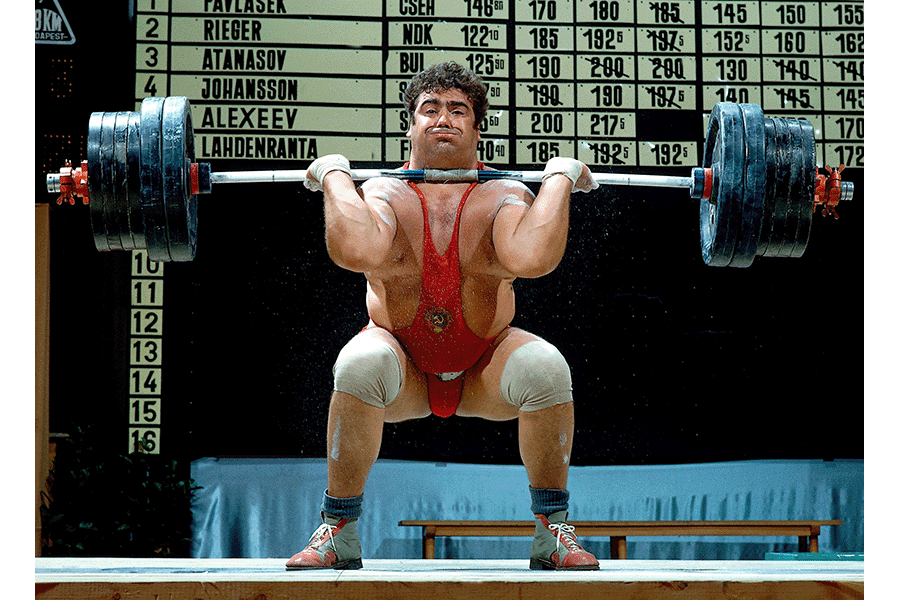Vassily Alexeyev was an Olympic lifter who set 81 world records and who also won gold medals in the 1972 and ’76 Olympic Games.
A legend in his sport.
His secret? According to Alexeyev, it was:
“Never training on the nerve.”
Huh?
What the hell does that mean?
Basically, there’s how much weight you can lift without “psyching yourself up” and running on adrenaline, and without straining to the very last fiber of your nerves.
Then there’s the 3-5% additional weight you can lift IF you do all those other things.
Of course, if you’re competing for gold, by all means: psych yourself up, jack up your adrenaline, and strain with all your might.
But what about day-to-day?
Never train on the nerve.
I’ve also heard it expressed as “always leave one (more rep) in the tank.”
Instead of training to failure, train to success and finish your set knowing you probably could have squeezed out one more rep.
Same principle.
That added 3-5% costs twice the recovery while flooding your body with stress hormones.
It’s an astoundingly bad deal.
Worse, it’s a bad deal that compounds over time.
I was reminded of this when I read the following anecdote from Derek Sivers (founder of CD Baby, musician, and acclaimed author).
Derek lived near a beautifully scenic, seaside, 15-mile bike trail.
And as a confirmed achiever, Derek would push himself as hard as possible every time he rode that trail.
He’d even track his time: 43 minutes — IF he scrambled like the dickens for every second of the ride.
The problem?
He started avoiding the ride, ‘cause it was so stressful and exhausting.
Subconsciously, he was telling himself not to do it anymore.
So he made a deal with himself.
Do the ride, but take it easy and enjoy it, rather than scrambling.
So… he saw stuff on this ride he’d never noticed before.
Like freaking dolphins playing in the bay, amazing coastal views, the basic joy of mountain biking.
And he loved every second of the ride.
But how much extra time did all that enjoyment cost?
Just how much slower was he this time?
He finished in 45 minutes.
All that miserable scrambling for a mere 2 minutes of speed.
How many months of living by a seaside bike trail had he wasted with scrambling?
More importantly, how much of life is just like that?
- What if you went to bed while you still had some energy “left in the tank”?
- What if you stopped eating while satiated, but not quite full — when you had a few more bites still “left in the tank”?
- What if you planned your workload so you didn’t have to “train on the nerve” to get it all done?
- What if you turned down the social engagement that would require you to run your last reserves rather than resting?
You could call it margin if you want — leaving yourself some margin for… well, life.
But it’s really about saving your “nerve” for when it matters.
Because those times will come.
And when they do, you’ll be glad you’ve got some reserves to call upon, still “left in the tank.”
Oh, and just in case you wanted this post to be about advertising, know that all that extra “messaging” you want to stuff in the ad…
Ends up trying the patience and goodwill of your audience about twice as much as if you just left that bullshit out and saved it for another ad.
Give your messaging room to breathe. Include the scenic views and emotionally enjoyable “rides” you’d otherwise have been forced to leave out to squeeze those extra points in.
Of course, if you too are a confirmed achiever, it also helps to have a coach help you with your advertising programming.
Just sayin’…
- Are You Paying for Too Much for the Wrong Keywords? - July 15, 2024
- Dominate Your Market Like Rolex — 4 Powerful Branding Lessons - July 3, 2024
- Military-Grade Persuasion for Your Branding - June 25, 2024

